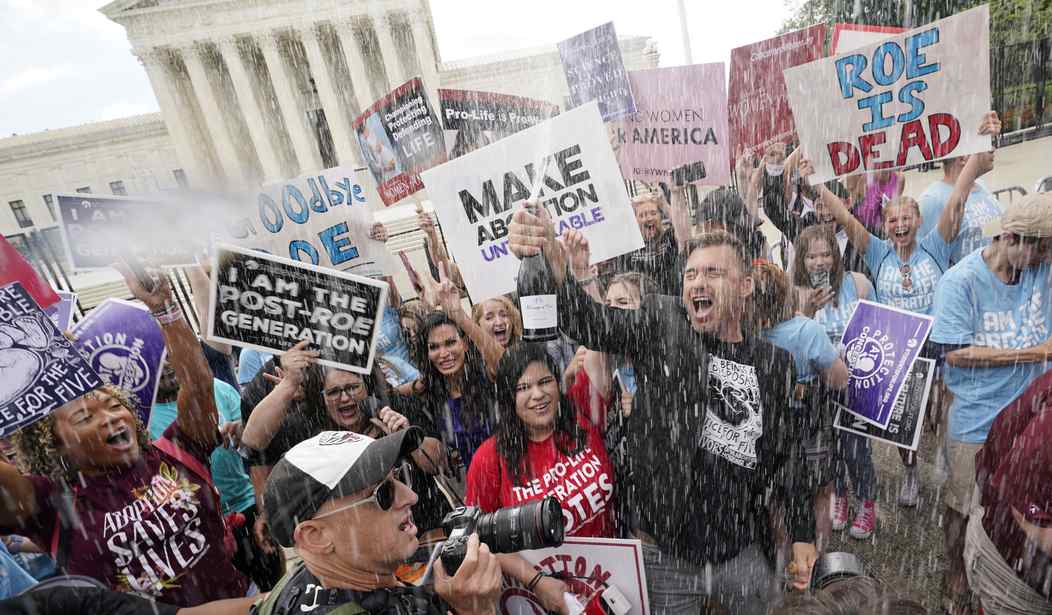On Tuesday afternoon, Sen. Lindsey Graham (R-SC) and Rep. Chris Smith (R-NJ) introduced the Protecting Pain-Capable Unborn Children from Late-Term Abortions Act, which will prohibit most abortions nationwide after 15-weeks, when science has shown that unborn children can feel pain.
Under such legislation, the onus is on the provider performing or attempting the abortion, who must determine the gestational age of the unborn child before performing the abortion. There are also exceptions for the life and certain health conditions of the woman, specifically if "in reasonable medical judgment, the abortion is necessary to save the life of a pregnant woman whose life is endangered by a physical disorder, physical illness, or physical injury, including a life-endangering physical condition caused by or arising from the pregnancy itself, but not including psychological or emotional conditions."
Other exceptions include pregnancy resulting from the rape of an adult woman who has received counseling and medical treatment for the rape at least 48 hours before her abortion, or if the pregnancy results from rape or incest against a minor and has been reported prior to the abortion to a law enforcement agency or a government agency legally authorized to act on child abuse.
The bill faced criticism not only from the hysterical pro-abortion movement, but some fellow Republicans also appeared to be wary of the timing when it comes to the upcoming midterms, especially when the August numbers for the Consumer Price Index (CPI) came in earlier that same day, revealing that inflation has ticked back up.
Polls consistently show that economic concerns, namely inflation, are a top concern for voters. Democrats and their allies in the mainstream media have sought to gin up hysteria though, by highlighting how abortion has become more of a top issue, according to some polls. Other polls don't have abortion as a top issue, though, and almost all still show economic concerns as the top voting concerns.
Recommended
That doesn't mean that the Republican Party can't focus on multiple issues at once though, an argument Sen. Graham has made over the years when it comes to the legislation.
Sen. Graham has introduced the legislation multiple times in Congress, long before the U.S. Supreme Court even took up the Dobbs v. Jackson case, which was ultimately handed down in June and overturned Roe v. Wade.
While the bill has received a majority of support from the Senate before, it has failed to overcome the 60-vote threshold as Democrats have filibustered the bill.
Hysterical reactions were trending on Twitter throughout Tuesday, not just with "Lindsey Graham" and "National Abortion Ban," but also "#RoevemberIsComing," and "#RoeRoeRoeYourVote." Our friends at Twitchy highlighted some of the best reactions.
For all the outcry about Sen. Graham and Republicans going for a national ban, Students for Life of America's Kristan Hawkins highlighted how that's hardly the case.
95% of abortions are committed before 15 weeks. What was proposed today was not a national abortion ban, fyi.
— Kristan Hawkins (@KristanHawkins) September 13, 2022
While the Centers for Disease Control (CDC) breaks down the numbers a bit differently, their data from 2019 shows that 92.7 percent of abortions were performed before or at 13 weeks gestation.
What abortions do take place after this point of 15-weeks are performed on pain-capable children, many using the Dilation & Evacuation (D&E) method, also known as dismemberment. The procedure has been described by an OB/GYN as part of a project for Live Action, as well as the bill's text, which also lays out health risks for the woman associated with the procedure.
As the bill's text describes it, the procedure involves "the use of surgical instruments to crush and tear an unborn child apart before removing the pieces of the dead child from the womb."
Another concern Republicans may have is that the issue is best left to the states.
Just because the Supreme Court has handed the abortion decision back to the states, as it did in the Dobbs case, does not mean that the federal government does not also have the power to regulate and restrict abortion. The bill's text references the Court several times, as well as its authority under the commerce clause.
Further, one way to interpret the Court overturning Roe and its strict confines is that the states as well as the federal government now have more leeway to regulate and restrict abortion.
While many states have moved to restrict abortion, including those that have enacted bans, other states are expanding abortion, such as California, New York, and Illinois. There are also a handful of places in this country with no gestational limit, meaning a woman can get an abortion up until birth for any or no reason. These include Alaska, Colorado, the District of Columbia, New Jersey, New Mexico, Oregon, and Vermont.
Further, those states that still perform elective abortions after 20-weeks gestation are among the only places in the world to do so, joining countries like China and North Korea, as well as Canada, where elective abortions are performed up until birth.
A poll from Harvard CAPS/Harris, conducted in late June, shortly after the Dobbs decision, found that 60 percent of Democrats and 70 percent of Independents believe that their state should allow abortion no later than 15 weeks. Further, women were more likely than men to say the same thing, at 75 percent and 69 percent, respectively.
Such facts about abortions so late in pregnancy hasn't stopped the mainstream media from sowing doubt. Several writers, for instance, put together a piece at NBC News with the headline of "'Bad idea': Republicans pan Lindsey Graham's 15-week abortion ban."
Townhall has reached out to the National Republican Senatorial Committee (NRSC) about the narrative that Republicans are supposedly in disarray about whether or not to support the bill. This piece will be updated when any such statement comes in.
























Join the conversation as a VIP Member